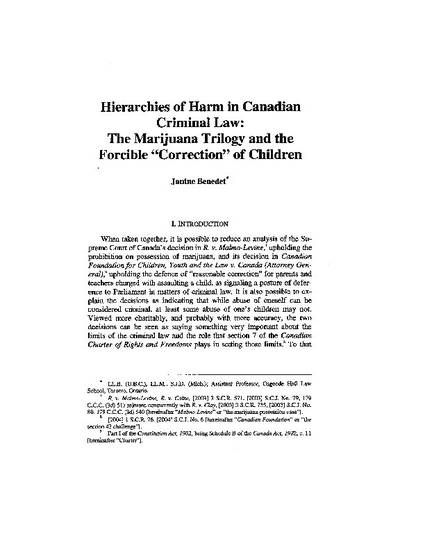
- Criminal law; De minimis principle; Charter section 7; Charter section 15; Corporal punishment; Drugs
- Criminal Law,
- Juvenile Law and
- Law
The author examines the seemingly contradictory Supreme Court of Canada decisions which upheld the prohibition on possession of marijuana (R. v. Malmo-Levine), yet allowed the defence of “reasonable correction” for parents and teachers charged with assaulting a child (Canadian Foundation for Children, Youth and the Law v. Canada (Attorney General)). She argues that these two decisions speak to the limits of the criminal law and the role that section 7 of the Canadian Charter of Rights and Freedoms plays in setting those limits. These decisions are also linked by the attempt by some members of the Court to establish a “de minimis” principle in criminal law. The Canadian Foundation case also seems to preclude historically subordinated groups seeking to use the right to equality to expose their experiences of state-sanctioned and socially accepted violence. The author argues that while the Court was correct in upholding the prohibition on marijuana possession, it should have struck down the “reasonable correction” defense.
